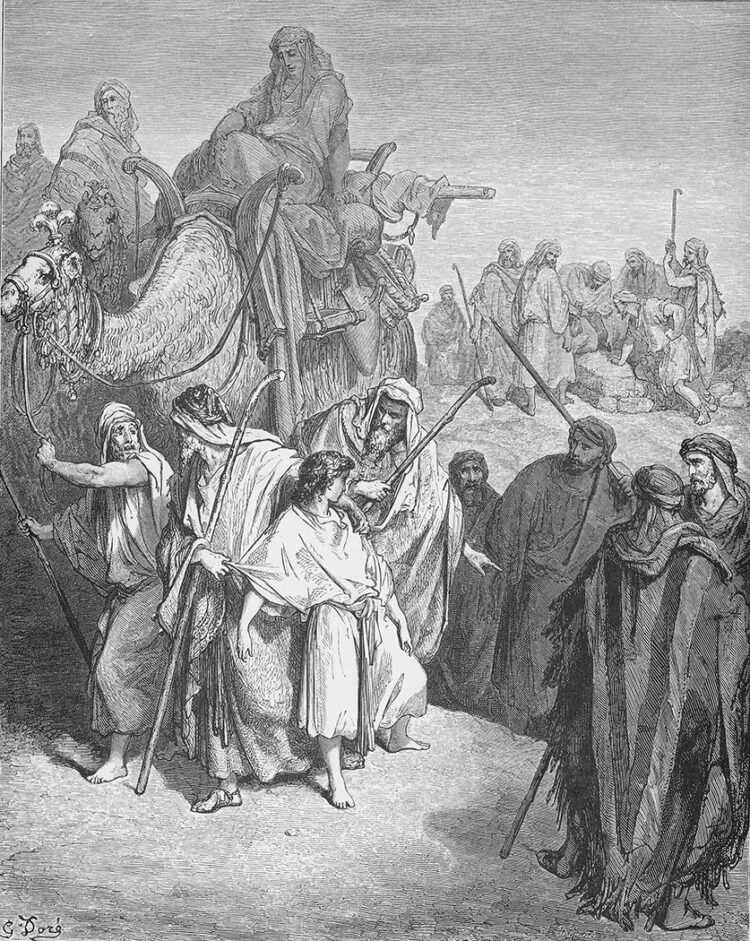Joseph Sold into Egypt by Gustave Doré, Genesis 37:12-36, Bible.Gallery

Joseph Sold into Egypt created and it was drawn with engraving style.
Artwork Description
This compelling and expressive depiction portrays a sorrowful image of human depravity. The youngest son of Jacob becomes the victim of his brothers' envy, leading to a heart-wrenching sequence of events. They betray him, selling him as a slave and condemning him to a life of exile, bondage, and endless toil in Egypt. What makes this act of cruelty even more unsettling is that these brothers were not heathens or Canaanites but descendants of Abraham, nurtured under the pious traditions of three generations.
The root of this heinous act lies in one simple phrase: "And his brethren envied him" (Gen. xxxvii. 11). Envy, an emotion purely evil, crept into their hearts and took hold, overshadowing any sense of goodness. While other negative emotions may at times appear justifiable, envy offers no such excuse. It is like the poison of the serpent, thriving on the prosperity and goodness of others, lamenting their success, and begrudging them their happiness. King Solomon aptly described envy as "Rottenness in the bones."
The consequence of this envy was hatred, and hatred, as history has shown, often leads to actions akin to murder. The ten brothers stained their own name, perpetrated a terrible injustice upon the young and innocent Joseph, and inflicted deep pain upon their venerable father for many years.
However, amid this dark tapestry of envy, malice, and cruelty, there exists a glimmer of hope. These sinister events were, in fact, part of a greater plan orchestrated by the One who is wise in counsel and powerful in action. God intended to separate His people from the corrupt nations of Canaan during their formative years, transforming them from a family into a nation. Egypt was the chosen place for this transformation to occur, and the events leading to Joseph's journey to Egypt were the initial steps in bringing about this divine design.
Although God's hand guided the circumstances, it's essential to recognize that the brothers' wickedness was entirely their own. God did not influence them to commit the crime; they acted out of their own volition, as they later acknowledged. The sequence of events, such as their time in Dothan, Joseph's mission, spotting him from afar, the idea of throwing him into the pit, the timely arrival of the Midianitish traders, Reuben's absence, and Judah's suggestion, were all elements that played a role in the outcome.
Joseph himself best encapsulates both sides of the transaction in his words: "As for you, you thought evil against me, but God meant it unto good, to bring it to pass as it is this day, to save much people alive" (Gen. 50:20). This complex interplay of human actions and divine providence led to a greater purpose, ultimately saving many lives in the future. Nonetheless, it does not diminish the heinous wrongdoing of the brothers, who were responsible for their choices throughout the tragic event.